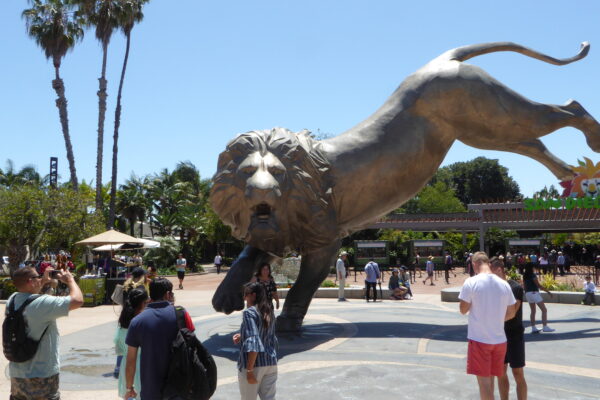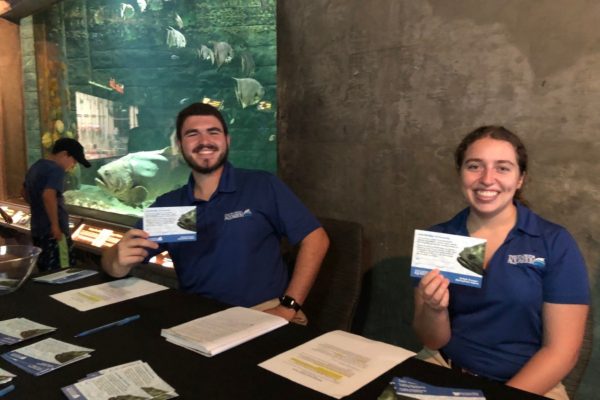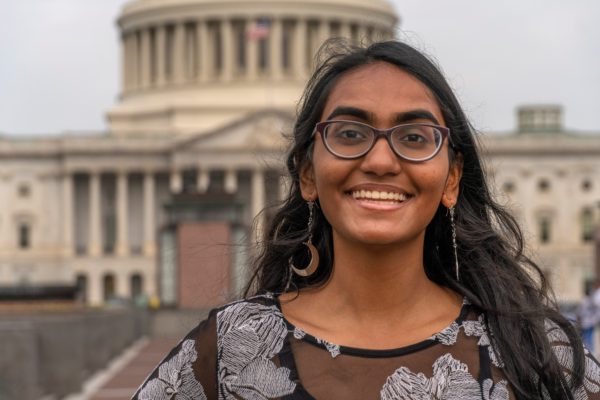This guest post by Teresa Mealy of Oregon Coast Aquarium is the second in a 3-part series on their Innovative Solutions Grants+ project, exploring the question “How do we fuel behavior changes in teens to decrease their impact on ocean acidification?”
The Oregon Coast Aquarium’s youth volunteer group has been busy learning the ins and outs of social marketing in preparation for launching a campaign this fall.
The group, which is calling itself the MOANA Group (Making Ocean Acidification Nationally Aware), is comprised of four highly motivated and enthusiastic youth. With a goal of promoting actions by their peers that would help address the issue of acidification, the teens, who already were informed on the issue, realized that their next step was to research the social marketing process, and challenge themselves to think outside the box.
Social marketing skill building
The Aquarium brought Action Research, a community based social marketing consulting firm, to fast-track the youth volunteers’ understanding of how social marketing can influence positive changes to their peers' behavior.
After an overview of social marketing, the teens launched into formulating behavior “asks”. Each student developed and researched at least five behavior changes that would result in lower carbon dioxide emissions, reducing its absorption into the oceans. MOANA’s volunteers generated a list of over 20 behavior changes that could make a difference! The Group then gathered to determine which actions would best fit their audience and project’s mission.
Narrowing down the “ask”
To reduce the list from 20 to four, the teens collected input from friends and family on relevancy and ease of implementation. One of the key steps of social marketing is to minimize the barriers between the ask and its adoption. With that in mind, the group eliminated many of the potential asks, which were considered less relevant to their peers, such as when the teens themselves would not be the ones making the ultimate decision, or, too difficult to implement, such as when the ask required a very high investment of time or money. For example, asking teens to install solar panels on their homes was an original idea, but after consideration it was eliminated for these two reasons.
To identify more promising asks, the youth volunteers conducted in-depth interviews with their peers. These interviews gave the group a better understanding of, not only the potential barriers to a behavior change, but also the impacts the change could have. The interview process was somewhat laborious, with some interviews lasting over an hour. However, the group gathered great insight into how to communicate with their peers and about potential opportunities teens have to impact their household. After discussing the results of the interviews, the teens narrowed their list of four behavior asks to one!
MOANA’s ask will be to encourage teens to turn off and unplug computers and game consuls when not in use. Not only do their peers feel they have control over that action, but it is one with a surprising potential for impact, with one recent report noting that, “a typical family spends $120 dollars per year on the so-called 'vampire appliances,' from cable and DVR boxes to cordless phone chargers, microwave ovens and video game consoles.
Next steps
The final process before implementing the campaign is surveying the target demographic to develop a baseline understanding of what teens are currently doing with their game consuls and computers. Now that school is back in session, the teens will survey their classmates and Oregon Coast Aquarium visitors.
While this data is collected, the teens will work with another consultant, and the team from The Ocean Project, to develop an evaluation process for their efforts, looking at questions such as: Did their peers take the action? And how did they feel about being asked to do so? With the surveys, campaign implementation and evaluation, the students look forward to a busy fall! Community-based social marketing was foreign to all of the teens in the spring. Now, they are not only much more comfortable with the method, they are ready to change the world!



